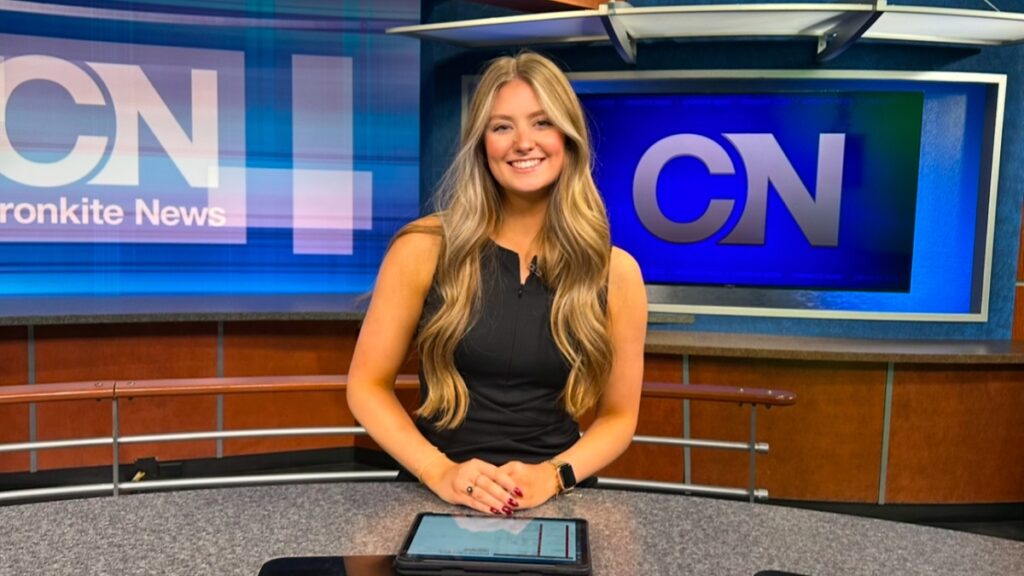Editor’s note: This story is part of a series of profiles of distinguished Fall 2024 graduates.
Kendall Flynn’s father was a high school football coach while she was growing up in Colorado Springs, Colorado. Although she was always surrounded by sports, sports journalism was not her focus when she enrolled at the Walter Cronkite School of Journalism and Mass Communication. She enrolled as a major in journalism and mass communication.
But during her freshman year’s welcome week, a student tour guide told her about the opportunities available to sports journalists at the Cronkite School. Then, the day before classes started, Flynn decided to change her major to sports journalism.
Since then, she has balanced her studies with part-time jobs, student organizations, internships, and a capstone experience at Cronkite News.
The combination of the two was a perfect fit for Flynn, who had a passion for journaling and writing and a life surrounded by sports.
At this month’s Cronkite School Convocation, Flynn will receive the Outstanding Undergraduate Student Award. Before that, she talked about her time at Cronkite and her plans after graduation.
Note: Interview has been edited for clarity and brevity.
Question: Why did you choose ASU?
Flynn: My father works in the auto industry, so he works with a lot of news outlets on commercials. But he asked someone at the news station, “Where’s the best place to go to journalism school?” My daughter is interested. ” They said Cronkite.
Q: Which professor taught you the most important lesson during your time at ASU?
A: My favorite professor is Paola Boivin. She truly embodies what it means to be a sports journalist. She loves her job and has worked on many things. I just worked at the (Cronkite News Phoenix Sports) bureau this semester, and she is a very encouraging person. Since I was a digital sports reporter, she was very helpful in pitching me story ideas. I was on the GCU beat, so I was looking for ways to work on my beats while also telling stories that hadn’t been told before. She’s a great professor.
We also turned to Todd Merkow for advanced issues in 21st century sports and media. I loved his classes and I loved him as a professor. He opens your eyes to the business side of sports, which is an interesting perspective, especially in journalism. When we write about sports, we actually talk about the game and the people, but not many journalists focus on the business side. There’s a lot on the business side: name, image, likeness, television rights.
Q: What is the best advice you would give to those still in school?
A: Try as many things as possible. When I was a freshman in college, I didn’t know what field I wanted to go into, whether I wanted to work in broadcasting, writing, or anything like that. I had no clue. So branch out into different aspects of journalism, put yourself in a club where you can do that, and try as many things as you can. who knows? You may end up taking a job that you have no idea if you’ll get. However, instead of just concentrating on one area, it is also beneficial to try out as many areas as possible.
Q: What are your plans after graduation?
A: We signed a contract with a news station in Palm Springs, California. They are under the ownership of KESQ’s News-Press & Gazette. So, I’m planning to become a multimedia journalist starting in January.
Q: If someone gave you $40 million to solve one problem on earth, what would you work on?
A: Use it to help people who don’t have the means to eat or shelter.



